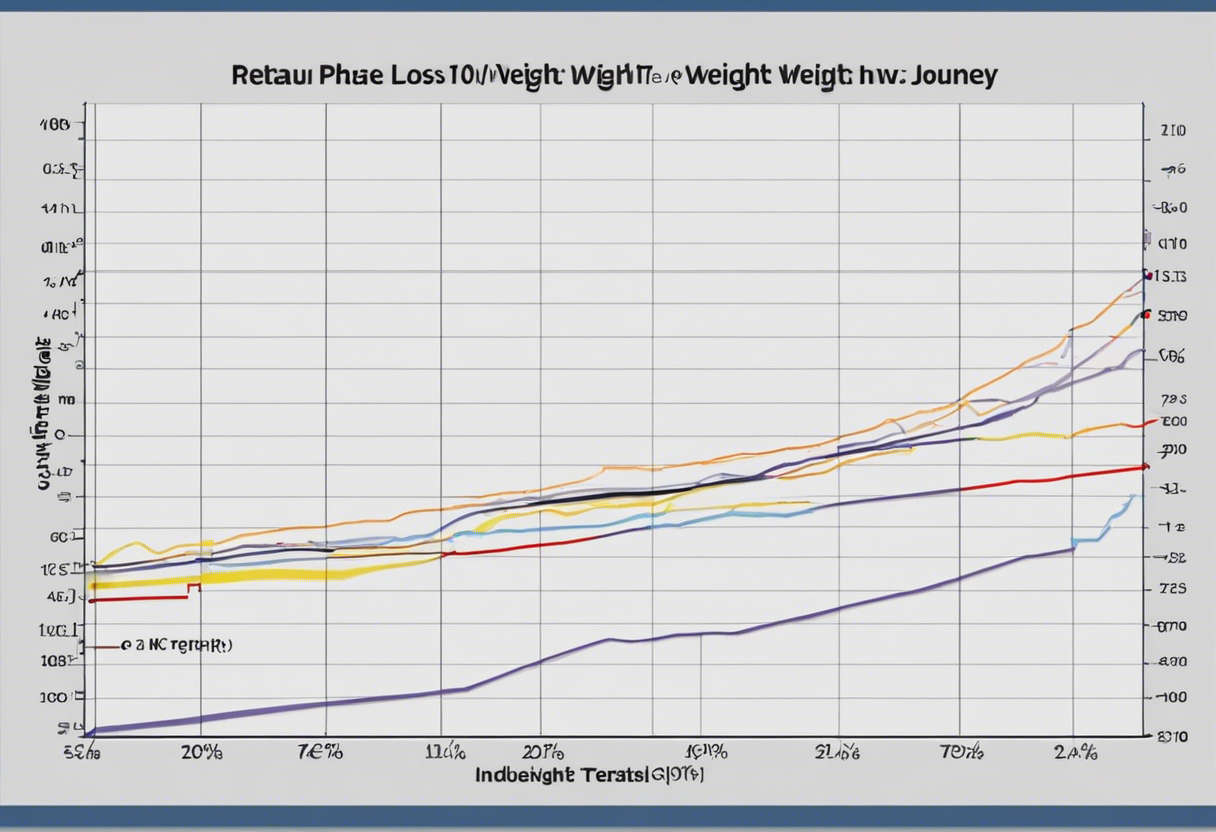Breaking Through a Weight Loss Stall After Bariatric Surgery: Solutions and Advice

Breaking Through a Weight Loss Stall After Bariatric Surgery: Solutions and Advice
Here’s an overview:
- Understanding the Weight Loss Plateau
- Reassessing Your Diet and Nutrition
- Exploring Exercise and Physical Activity
- Managing Stress and Emotional Eating
- Working with a Support Group or Professional
- Incorporating Mindful Eating Practices
- Making Adjustments to Your Medications
- Tracking Your Progress and Celebrating Non-Scale Victories
- Staying Patient and Persistent
Understanding the Weight Loss Plateau

When individuals experience a weight loss plateau after bariatric surgery, it can be frustrating and disheartening. Understanding the reasons behind this stall can help individuals navigate through this phase effectively.
- Metabolic Adaptation: After significant weight loss, the body’s metabolism may slow down as it adjusts to the new weight. This can result in fewer calories burned at rest, leading to a plateau in weight loss.
- Decrease in Physical Activity: Sometimes, individuals unknowingly reduce their physical activity levels as they become accustomed to their new lifestyle post-surgery. This reduction in activity can contribute to a weight loss stall.
- Lack of Variety in Eating Habits: Eating the same foods repeatedly or not maintaining a balanced diet can also hinder weight loss progress. It is essential to ensure a varied and nutrient-dense diet.
- Not Enough Water Intake: Dehydration can impact metabolism and lead to a weight loss plateau. Staying adequately hydrated is crucial for overall health and weight loss success.
- Stress and Lack of Sleep: High stress levels and inadequate sleep can disrupt hormone levels related to metabolism and appetite regulation, potentially impeding weight loss efforts.
- Mindless Eating: Consuming food without paying attention to portion sizes or satiety cues can contribute to weight loss plateaus. Practicing mindful eating can help prevent this.
Understanding these factors can empower individuals to make necessary adjustments to break through the weight loss plateau and continue on their journey towards their health goals.
Reassessing Your Diet and Nutrition

- It is crucial to prioritize protein intake in your diet after bariatric surgery. Protein plays a key role in maintaining muscle mass and supporting satiety.
- Ensure that you are consuming high-quality proteins such as lean meats, fish, eggs, dairy products, and plant-based sources like legumes and tofu.
- Stay hydrated by drinking plenty of water throughout the day. Dehydration can lead to feelings of hunger, which may result in overeating.
- Focus on incorporating a variety of nutrient-dense foods into your meals, including fruits, vegetables, whole grains, and healthy fats.
- Monitor your portion sizes and avoid grazing throughout the day. Stick to structured meal times to help control your calorie intake.
- Keep track of your food intake and listen to your body’s hunger and fullness cues. Mindful eating can help prevent mindless snacking.
- Consider consulting a dietitian specialized in bariatric nutrition for personalized guidance on meeting your nutritional needs.
- Avoid high-calorie, low-nutrient processed foods and sugary snacks. Opt for whole, unprocessed foods to fuel your body effectively.
By reassessing your diet and focusing on nourishing your body with nutrient-dense foods, you can overcome a weight loss plateau after bariatric surgery and continue on your journey towards improved health and well-being.
Exploring Exercise and Physical Activity

Regular physical activity is essential for maintaining weight loss after bariatric surgery. Here are some key points to consider:
- Start Slow: Begin with gentle activities such as walking or swimming. Gradually increase intensity as your fitness levels improve.
- Resistance Training: Incorporating strength training into your routine helps build muscle mass, which can boost metabolism and aid in weight loss.
- Cardiovascular Exercise: Engaging in cardio activities like cycling or jogging helps burn calories and improve heart health.
- Consistency is Key: Aim for at least 150 minutes of moderate-intensity exercise per week, spread out over several days.
- Find Enjoyable Activities: Choose exercises that you enjoy to make it easier to stick to your routine long-term.
- Stay Active Throughout the Day: Take short walks, use stairs instead of elevators, and find ways to incorporate movement into your daily life.
- Consult a Professional: Work with a fitness trainer or physical therapist to develop a safe and effective exercise plan tailored to your needs.
“Exercise not only helps with weight loss but also improves mood, energy levels, and overall well-being.”
Remember, incorporating a variety of physical activities and finding what works best for you is key to breaking through a weight loss plateau and maintaining a healthy lifestyle post-bariatric surgery.
Managing Stress and Emotional Eating

Stress and emotional eating can often lead to overeating or poor food choices, especially after bariatric surgery. Here are some recommendations to help manage stress and avoid emotional eating:
- Practice mindfulness: Being present and aware of your emotions can help prevent impulsive eating. Take a moment to evaluate your feelings before reaching for food.
- Find alternative coping mechanisms: Instead of turning to food for comfort, try activities like deep breathing, meditation, or going for a walk to alleviate stress.
- Seek support: Joining a support group or talking to a therapist can provide you with emotional support and guidance in dealing with stress and emotional triggers.
- Plan ahead: Keep healthy snacks readily available and plan your meals in advance to avoid making impulsive food choices when stressed.
- Stay active: Regular exercise releases endorphins that can help improve mood and reduce stress levels. Find physical activities that you enjoy and make them a part of your routine.
- Identify triggers: Pay attention to situations or emotions that trigger emotional eating. Once you identify them, work on finding healthier ways to cope with those triggers.
- Practice self-compassion: Be gentle with yourself and recognize that setbacks happen. Instead of criticizing yourself, practice self-compassion and focus on making positive choices moving forward.
By incorporating these strategies into your daily routine, you can better manage stress and emotional eating, ultimately supporting your weight loss journey after bariatric surgery.
Working with a Support Group or Professional

- Joining a Support Group:
Seeking support from others who have undergone similar challenges can provide valuable insight and motivation. Joining a support group specific to bariatric surgery can offer emotional support, practical tips, and a sense of camaraderie. - Consulting with a Bariatric Specialist:
A bariatric specialist or nutritionist can offer tailored advice and guidance to help you navigate through a weight loss plateau. They can review your diet, exercise routine, and overall lifestyle to pinpoint areas of improvement and recommend personalized strategies for breaking through the stall. - Behavioral Therapy:
Working with a psychologist or counselor specializing in weight management can address underlying emotional issues that may be hindering your progress. Behavioral therapy can help you develop healthier habits, manage stress effectively, and enhance your relationship with food. - Medical Evaluation:
In some cases, a medical evaluation may be necessary to rule out any underlying medical conditions contributing to the weight loss stall. Consulting with your bariatric surgeon or primary care physician can help identify any potential issues and devise a treatment plan accordingly. - Nutritional Counseling:
Meeting regularly with a dietitian or nutritionist can ensure that you are following a balanced and nutrient-rich diet that supports your weight loss goals. They can help you make necessary adjustments to your meal plan and provide ongoing support to help you stay on track.
By working with a support group or professional, you can gain valuable insights, personalized guidance, and the motivation needed to overcome a weight loss stall after bariatric surgery.
Incorporating Mindful Eating Practices

Incorporating mindful eating practices can be a powerful tool in breaking through a weight loss stall after bariatric surgery. Here are some strategies for incorporating mindfulness into your eating habits:
- Slow Down and savor each bite: Eating slowly and savoring each bite can help you become more in tune with your body’s hunger and fullness cues. It can also help you appreciate the taste and texture of your food more fully.
- Eliminate distractions: Avoiding distractions such as watching TV or being on your phone while eating can help you focus on your food and be more mindful of the eating process. This can lead to better portion control and prevent overeating.
- Listen to your body: Pay attention to your body’s hunger and fullness signals. Eat when you are truly hungry and stop when you are satisfied, not when your plate is empty. This can help prevent mindless eating and promote better awareness of your body’s needs.
- Practice gratitude: Before each meal, take a moment to express gratitude for the food in front of you. This can help you cultivate a more positive relationship with food and increase awareness of the nourishment it provides.
- Mindful snacking: When snacking, choose nutrient-dense foods and eat them with intention. Avoid mindlessly munching on snacks while distracted, and instead savor each bite to fully appreciate and enjoy the food.
By incorporating these mindful eating practices into your daily routine, you can increase awareness of your eating habits, improve portion control, and potentially break through a weight loss plateau after bariatric surgery.
Making Adjustments to Your Medications

- Consult Your Healthcare Provider: It is crucial to consult your healthcare provider before making any changes to your medication regimen. They can provide guidance on how to safely adjust your medications to support your weight loss goals after bariatric surgery.
- Discuss Weight Loss Stall: Talk to your healthcare provider about your weight loss stall after bariatric surgery. They can evaluate your current medications and make recommendations for adjustments based on your individual needs.
- Review Medication Interactions: Ensure that your healthcare provider reviews your medications to check for any interactions that could be affecting your weight loss progress. Adjustments may be necessary to address any potential hindrances.
- Consider Alternative Options: Your healthcare provider may suggest alternative medications that are more suitable for your post-bariatric surgery needs. They can help you explore different options that align with your weight loss goals.
- Monitor Side Effects: Keep track of any side effects you may experience when adjusting your medications. It is essential to report any issues to your healthcare provider promptly, so they can make further adjustments as needed.
- Stay Committed to Your Health: Remember that making adjustments to your medications is a collaborative process between you and your healthcare provider. Stay committed to your health journey and follow their guidance closely to optimize your weight loss results after bariatric surgery.
Tracking Your Progress and Celebrating Non-Scale Victories

- Consistent Tracking: Utilize a food journal or mobile app to monitor daily food intake, exercise routines, and water consumption. This helps in identifying patterns and areas for improvement.
- Regular Weigh-Ins: Weigh yourself at consistent times, preferably weekly, to track progress accurately. Remember, weight loss after bariatric surgery may not always be linear.
- Body Measurements: In addition to the scale, take measurements of your waist, hips, and other areas. Sometimes, changes in measurements can indicate progress even when the scale stalls.
- Progress Photos: Document your journey with photos taken periodically. These visual representations can highlight the transformation your body is undergoing, especially when the scale seems stagnant.
- Non-Scale Victories: Celebrate achievements beyond the scale, such as increased energy levels, improved sleep, clothing fitting better, or being able to participate in physical activities that were challenging before.
- Create Milestones: Set achievable goals and milestones along the way. Recognizing these smaller achievements can keep you motivated during plateaus.
- Reward Yourself: Treat yourself when hitting milestones or achieving non-scale victories. However, choose non-food rewards to reinforce positive behaviors.
- Seek Support: Share your progress with friends, family, or support groups. Having a supportive network can keep you accountable and motivated throughout your weight loss journey.
Remember, tracking progress goes beyond just numbers on a scale. Non-scale victories and overall improvements in health and well-being are equally significant markers of success.
Staying Patient and Persistent

When facing a weight loss stall after bariatric surgery, it is essential for individuals to maintain patience and persistence in their journey towards better health. Here are some key strategies to help navigate through this challenging phase:
- Mindful Eating: Encourage mindfulness during meals by savoring each bite, eating slowly, and focusing on physical hunger cues. This practice can help prevent overeating and promote a healthier relationship with food.
- Regular Exercise: Stay committed to a consistent exercise routine tailored to individual needs and abilities. Incorporating a variety of activities such as cardio, strength training, and flexibility exercises can boost metabolism and aid in breaking through plateaus.
- Seek Support: Surround yourself with a strong support system of family, friends, healthcare professionals, or bariatric support groups. Sharing experiences, challenges, and successes can provide the motivation and encouragement needed to stay on track.
- Track Progress: Keep track of food intake, exercise routines, and weight loss progress. Monitoring these aspects can help identify patterns, areas for improvement, and celebrate small victories along the way.
- Stay Hydrated: Adequate hydration is crucial for overall health and weight loss. Drinking plenty of water throughout the day can help curb cravings, support metabolism, and improve the body’s ability to burn fat.
- Professional Guidance: Consult with healthcare providers or nutritionists to reassess dietary plans, exercise regimens, and overall weight loss strategies. Adjustments may be necessary to overcome plateaus and achieve continued progress.
Incorporating these strategies and staying patient and persistent can help individuals overcome weight loss stalls after bariatric surgery and move closer to their health goals. Remember that progress may not always be linear, but with dedication and perseverance, breakthroughs can be achieved.




